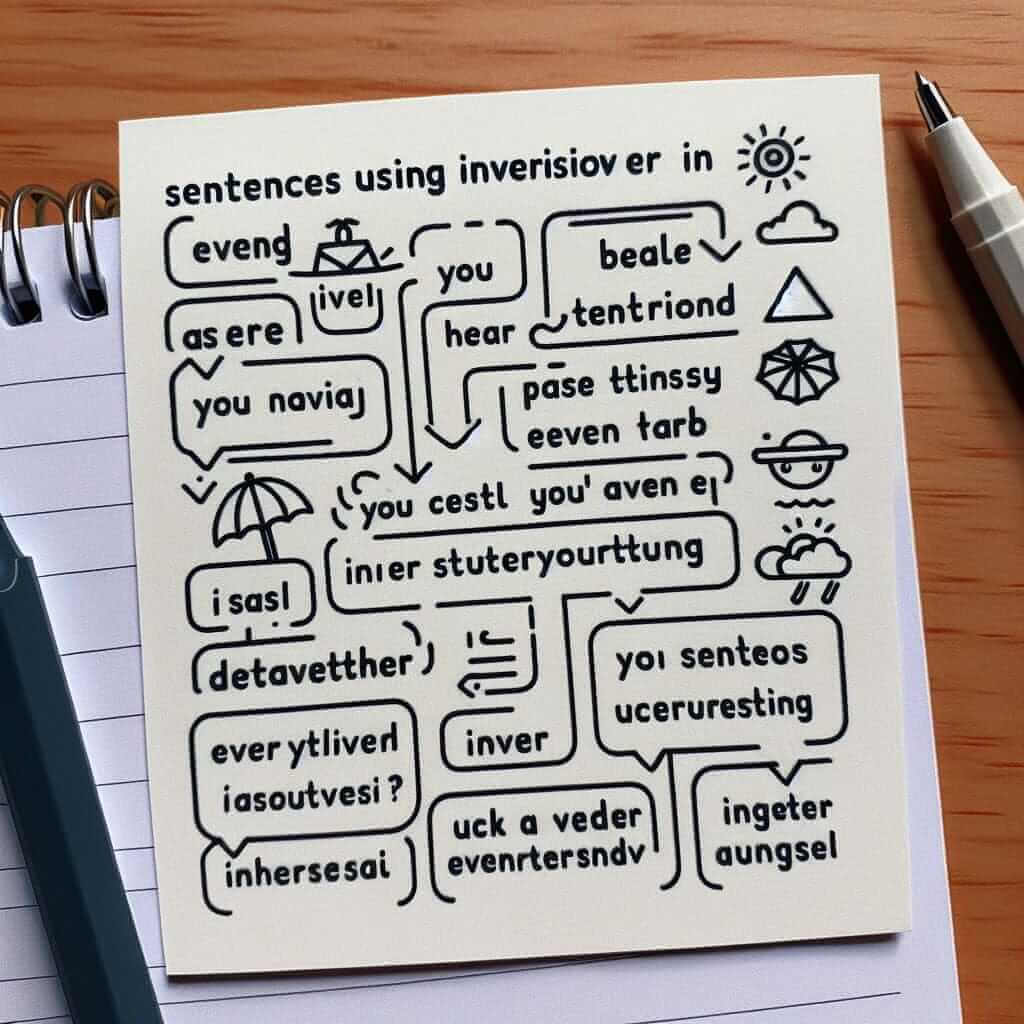“On no condition will I accept this!” This statement, dripping with drama and determination, might sound like something straight out of a Shakespearean play. While you probably won’t need this level of theatricality in your IELTS exam, understanding how to use this structure and its variations can significantly enrich your writing and speaking, particularly in expressing strong opinions or conditions.
Let’s look at a few examples of how this structure can be used across different sections of the IELTS exam:
Speaking Part 3:
- “On no condition would I support a policy that harms the environment. Protecting our planet should be our top priority.”
Writing Task 2 (expressing a strong opinion):
- “Some argue that economic growth should take precedence over environmental protection. However, on no condition should we sacrifice our planet’s health for short-term economic gains.”
Writing Task 1 (describing a dramatic trend):
- “From the graph, it is clear that on no condition did the company’s profits recover after the scandal broke in 2015.”
In each example, the structure emphasizes the importance of the condition being discussed. Now, let’s delve deeper into the intricacies of this useful grammatical tool.
Demystifying “On No Condition…”
The phrase “on no condition” signifies an absolute and non-negotiable stance. It’s a more emphatic and formal way of saying “never” or “under no circumstances.” This structure is often found in formal writing and speeches but can also be used in spoken English to emphasize a point strongly.
Constructing Emphatic Sentences with “On No Condition”
Formula:
On no condition + auxiliary verb + subject + main verb + …
Breakdown:
- “On no condition”: This phrase sets the tone of the sentence, indicating a strong negation or refusal.
- Auxiliary Verb: This depends on the tense and form of the main verb (e.g., will, would, should, can, could).
- Subject: The person or thing performing the action.
- Main Verb: The action being negated or refused.
 On No Condition Sentence Structure
On No Condition Sentence Structure
Mastering the Application
Writing:
-
Expressing strong opinions: This structure is particularly useful in opinion essays where you need to present a strong and unwavering viewpoint.
- Example: “On no condition should animal testing be tolerated, regardless of its potential benefits to humanity.”
-
Describing categorical data or trends: In Task 1, when describing data that shows a complete lack of change or occurrence, this structure can be highly effective.
- Example: “As can be seen from the chart, on no condition did the unemployment rate fall below 10% throughout the entire decade.”
Speaking:
- Stating opinions emphatically: During the speaking test, particularly in Part 3, you can use this structure to express your views clearly and confidently.
- Example: “On no condition would I consider moving to a megacity. I value peace and quiet too much.”
Elevating Your Language: Alternatives and Variations
While “on no condition” packs a punch, varying your language showcases a wider vocabulary. Here are some alternatives to consider:
- Under no circumstances…
- Never…
- At no point…
- It is simply not acceptable that…
- … is completely out of the question.
Example: “Under no circumstances can we ignore the plight of refugees. It is our moral obligation to provide aid and support.”
Common Pitfalls to Avoid
-
Incorrect Inversion: Remember to invert the subject and auxiliary verb after “on no condition.”
- Incorrect: On no condition I will accept this.
- Correct: On no condition will I accept this.
-
Overuse: While impactful, using this structure too frequently can make your writing or speaking sound repetitive and overly formal.
Conclusion: Speak with Conviction
Mastering the use of “on no condition” and its variations allows you to express your opinions and ideas with conviction and clarity, demonstrating a sophisticated command of English grammar and vocabulary. Remember to practice using this structure in various contexts to integrate it naturally into your IELTS preparation. By expanding your linguistic repertoire, you equip yourself to achieve the high band scores you aim for.


